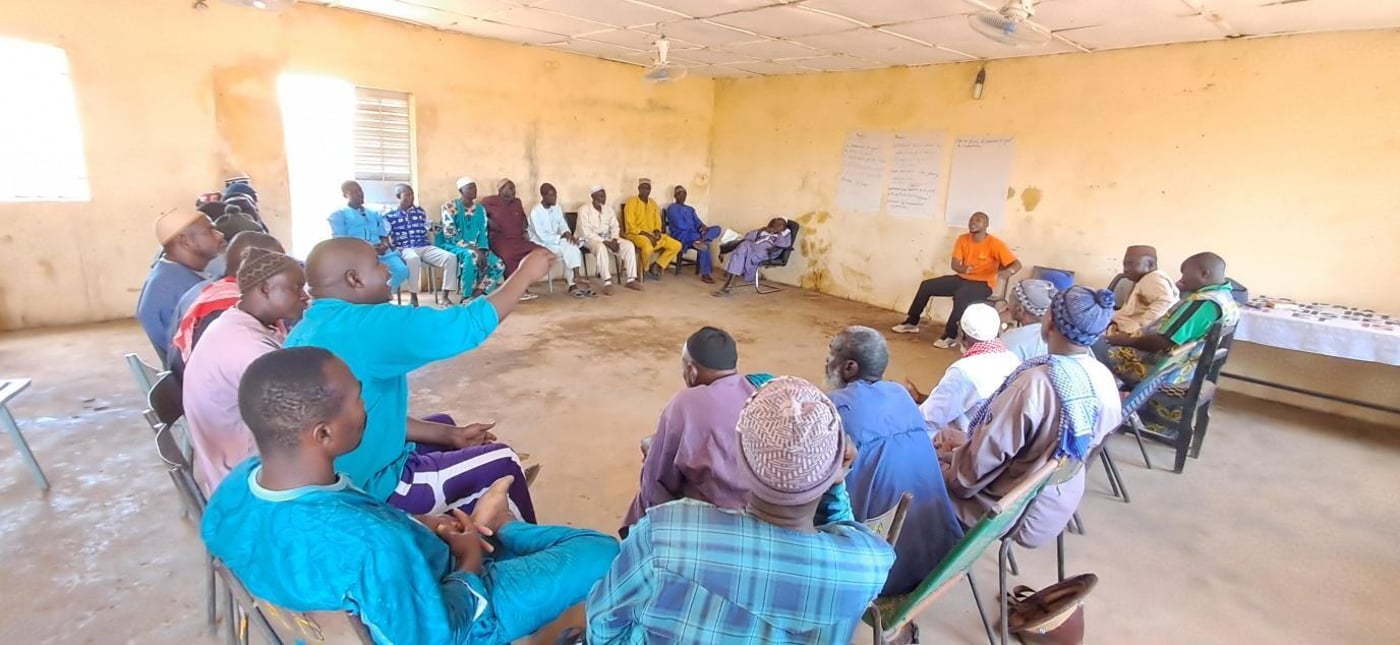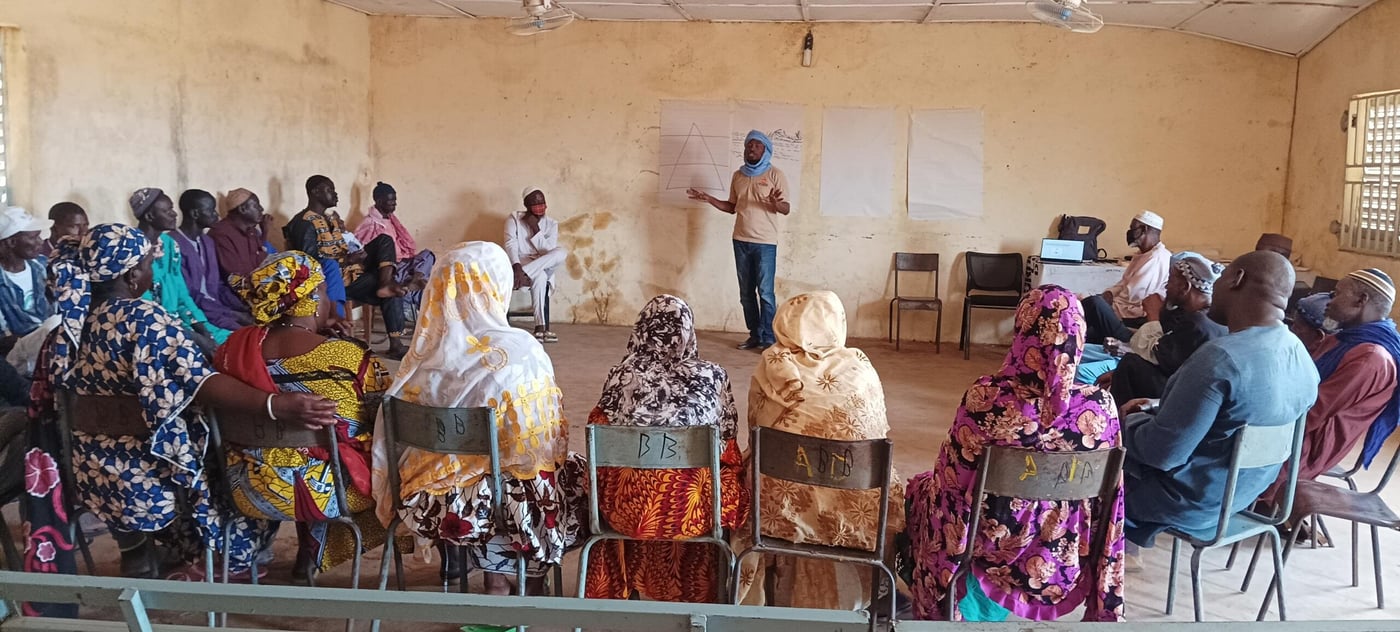The situation arose because of the exploitation of natural resources. Previously, a space was set aside for agricultural activities, and part of this space served as a passage and resting area for the herders’ livestock. However, despite the delimitation of the space, some farmers continued to exploit other areas traditionally reserved for livestock.
As a result, the village chiefs of Konio Marka and Konio Peulh, along with their advisors and the cooperative of herders, requested an immediate stop to the exploitation of the areas concerned. When their request was not heeded, they decided to impose sanctions against anyone exploiting the areas.
Reducing tensions through mediation
The Norwegian Refugee Council (NRC) identified the conflict during a local protection analysis. Upon realising the situation, NRC put together a specialist protection team to restore communication between the herders and farmers and initiate a humanitarian mediation process. The leaders of both parties to the conflict agreed to participate in the mediation.
No-one wanted to marry a member of the other community because of the conflictAissatou Diallo
To better understand the conflict between the two communities, the team conducted a conflict-sensitive analysis. Many people testified to a tense and stressful social climate between the two communities.
Local resident Aissatou Diallo stated: "The situation was worrisome and concerning given the erosion of kinship ties. I could no longer gather firewood alone in the fields because the landowners prohibited us. I was subjected to insults, and within the village, no-one wanted to marry a member of the other community because of the conflict."
Hassana, a resident of the village and a herder, testified in these words: "A climate of distrust, worry, and fear of a potential confrontation between the sons of the same locality had taken hold."
This situation did not leave anyone indifferent in the village of Konio.

A foundation for future harmony
The goal of the protection team’s mediation process was to help the conflicting parties communicate and collaborate so that they could find a solution to the conflict on their own.
Following the meetings, consensual solutions were identified, such as the revitalisation of communal agro-pastoral management and the establishment of a monitoring committee to make sure the agreements were respected.
I no longer argue with my fellow farmers because I now know which areas are off-limits for grazingHassana
The mediation process has helped to soothe hearts and restore communication and interaction between the two communities in the village of Konio. Aissatou, a participant in the process, says that it will help the community to work together and will facilitate social support, the foundation for harmonious and collective development.
Hassana, another participant in the process, testifies to this: "Following the mediation meeting, I feel safer when I take my animals out to graze. I let them rest without worrying, and I no longer argue with my fellow farmers because I now know which areas are off-limits for grazing."
This mediation was part of a project called "Proactive Protection of Civilians in Humanitarian Contexts," funded by the Swedish Private Fund. The overall aim of this project is to help improve civilian protection in Mali.
Sign up to our newsletter to read more stories from around the world.
Mali is one of the world’s most neglected displacement crises. It may not make the headlines, but the needs are urgent. Share this story and help shine a light on the world's neglected displacement crises. Your voice matters when others remain silent.


